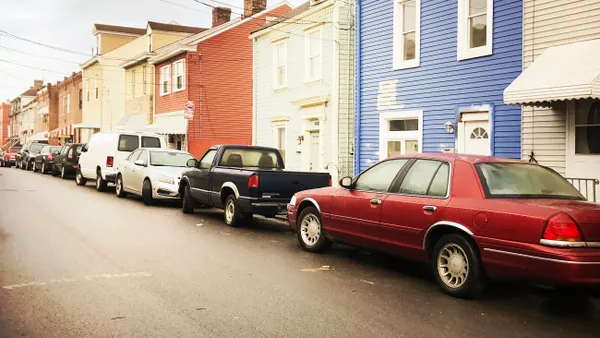Dive Brief:
- A bill under consideration by the Oakland, CA City Council would heavily regulate the city’s use of surveillance technology.
- Under the provisions in the bill, which unanimously passed a first reading last week, city departments must submit a "technology impacts report" to Oakland’s civilian-led Privacy Advisory Commission before new surveillance technology can be approved. The city would also need to create an "Annual Surveillance Report" detailing how the technology was used and how data was collected and shared.
- City Council is expected to give the legislation final passage at its meeting on May 15.
Dive Insight:
Oakland’s bill comes as California is considering state-level reforms of its surveillance programs, signaling a growing sentiment that surveillance in cities must be more closely monitored and be more transparent.
In a post on its website supporting the California bill, Matt Cagle of the ACLU said surveillance is being exploited to tear families and communities apart. "Public safety in the digital era must include transparency and accountability when law enforcement seeks to use technology to monitor, target, and detain us," Cagle wrote.
For several years now, trust has appeared to be eroding between city police departments and some of the citizens they serve due to the expansion of surveillance powers. That has been felt the hardest by minority communities, something acknowledged in the Oakland bill language.
“[The] City Council finds that, while the use of surveillance technology may threaten the privacy of all citizens, throughout history, surveillance efforts have been used to intimidate and oppress certain communities and groups more than others, including those that are defined by a common race, ethnicity, religion, national origin, income level, sexual orientation or political perspective,” the text reads.
As cities take advantage of more technology for initiatives like predictive policing and more immediate responses to crime scenes, the challenge becomes balancing the benefits of technology with the need to protect citizens’ privacy and not unfairly targeting certain neighborhoods or demographics. Louisville, KY submitted an application earlier this year to deploy drones in areas where gunshots are detected by new ShotSpotter technology, but it came under fire for leading to what The Daily Beast called "disproportionate surveillance of low-income communities."
If this bill passes in Oakland — and the likelihood is that it will — citizens will have a much greater say in surveillance methods used and be able to challenge them through the Privacy Advisory Commission. Commission Chair Brian Hofer told Vice that the new bill is "participatory democracy," as it encourages greater transparency and citizen engagement in Oakland’s acquisition and use of certain technologies.










